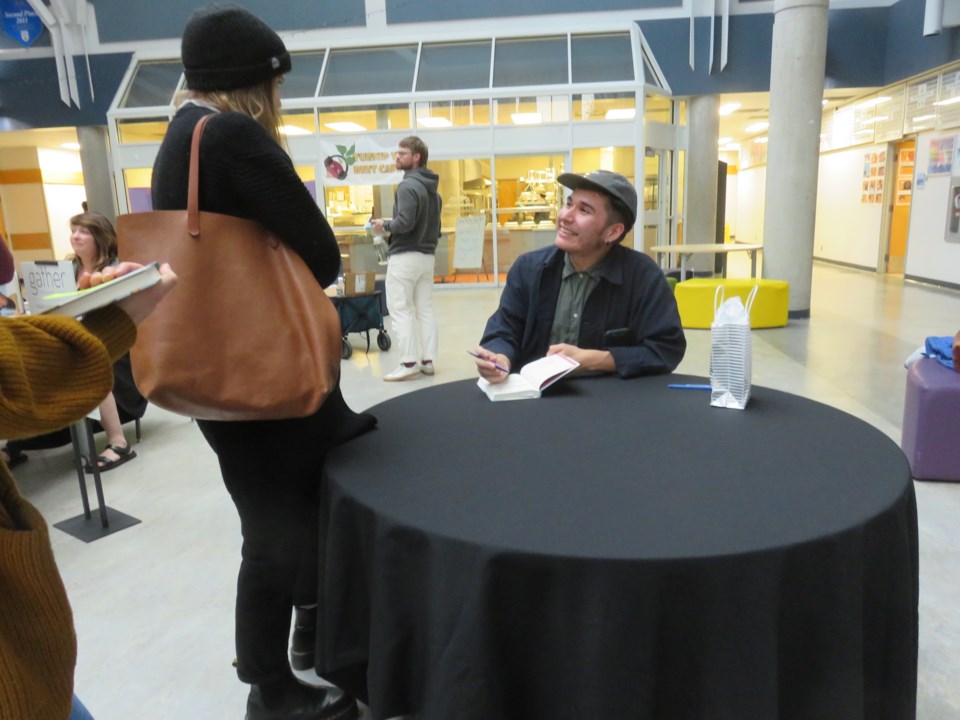June is Indigenous History and Pride Month. What better person to represent both than queer Indigenous poet and author Billy-Ray Belcourt.
“I’m a poet because I’m not a good singer,” joked Belcourt at a Squamish Public Library reading from his new book “Coexistence: Stories,” held at the Eagle Eye Community Theatre on June 11.
Considering the many literary awards he won as a finalist for the Governor General’s Literary Award, a Rhodes Scholarship and an Indspire Award, one can see that he chose the right path.
Reading from a passage of his latest work, Belcourt depicts what he calls both his identities as an Indigenous and gay man in his prose. He exposes the tension and threat of violence in a world that often devalues women, the gay man and the Indigenous.
Belcourt writes of emotion close to the heart. The heartbeat is a drumbeat. The rhythmic dance of passion. Of men loving men.
Choking with emotion, an audience member, expressed gratitude for the expressive way Belcourt describes the pain inflicted through callous sexism and racism.
“I’ve gone through heartbreak,” he said.
Belcourt, from the Driftwood Cree Nation, was raised on the reservation by his grandmother and sister. He spoke of the need for people to mother one another—mother nurture, mother nature—and writes with passion and compassion about the trials and triumphs of life being raised on an Indigenous reserve in Northern Alberta.
In his award-winning debut poetry collection This Wound is a World, the poem entitled, “If Our Bodies Could Rust, We Would Be Falling Apart," is a lament exposing the depth of endemic racism.
The phrase “Oh, I got one” repeated in the poem, are the words shouted by a man who killed an Indigenous woman by throwing a trailer hitch at her from a moving car (based on a real court case). Belcourt writes “a hate crime can only be classified as such if there is ample evidence to show that one’s actions were motivated by prejudice toward an individual’s nationality, ethnicity, sexuality gender, etc.”
“Oh, I got one,” was deemed not enough?
“The job of fiction is to draw on experience to which some truth comes to focus,” he said.
Belcourt has a PhD in English, from the University of Alberta.
He is an assistant professor of Indigenous creative writing at UBC.
The library has copies of his work and those of other Indigenous authors to commemorate Indigenous History month, and books on Pride as well.
Melody Wales is a veteran writer and Squamish resident.
*Please note, this story was modified after it was first posted to clarify how Belcourt identifies.




